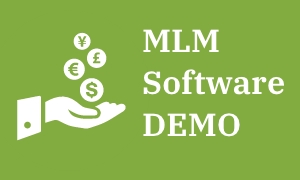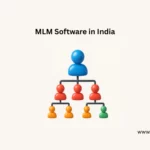Introduction
Pyramid schemes and multi-level marketing (MLM) are two distinct business models. Understanding the difference between the two can help you avoid potentially risky investments. Both are forms of direct selling, but they differ in their primary focus, compensation structure and legality.
Definition of Pyramid Schemes
Pyramid schemes are illegal and unsustainable business models that rely on recruiting participants to make money. Participants make money not by selling an actual product or service, but by recruiting more people into the scheme.
Definition of Multi-Level Marketing
Multi-level marketing (MLM) is a legitimate business model in which participants make money by selling products or services and recruiting more people to do the same. Unlike pyramid schemes, MLM participants make money by selling and marketing actual products or services, not by recruiting new participants.
Key Differences
Primary Focus
The primary focus of a pyramid scheme is on recruitment rather than the sale of a product or service. Participants make money by recruiting new members, with no actual product or service being sold. In contrast, the primary focus of a multi-level marketing business is on the sale of a product or service. Participants make money by selling products or services and recruiting new members, but the focus is on the sale of the product or service.
Compensation Structure
The compensation structure of a pyramid scheme is based on recruiting new participants. Participants make money by recruiting new members and may not necessarily make money from selling products or services. In contrast, the compensation structure of a multi-level marketing business is based on the sale of products or services. Participants make money from selling products or services and from recruiting new members.
Legality
Pyramid schemes are illegal in many countries and can be subject to severe penalties and fines. Multi-level marketing is legal in most countries, as long as participants are selling an actual product or service.
Pyramid Schemes
Overview
A pyramid scheme is an unsustainable business model in which participants make money by recruiting new members, rather than by selling products or services. Participants make money by recruiting new members, with no actual product or service being sold.
Examples
Some examples of pyramid schemes include Ponzi schemes, chain letters and “gifting clubs”.
Multi-Level Marketing
Overview
Multi-level marketing (MLM) is a legitimate business model in which participants make money by selling products or services and recruiting new members to do the same. Unlike pyramid schemes, MLM participants make money by selling and marketing actual products or services, not by recruiting new participants.
Examples
Some examples of multi-level marketing businesses include Mary Kay, Avon and Tupperware.
Risks and Tips
Risks of Pyramid Schemes
Participating in a pyramid scheme can be risky, as it is illegal in many countries and can be subject to severe penalties and fines. It is also unsustainable, as the number of people needed to join the scheme will eventually exceed the number of people available to join.
Tips for Avoiding Pyramid Schemes
To avoid getting involved in a pyramid scheme, it is important to research any potential business opportunity carefully. Be wary of any opportunity that promises high returns with little or no effort, or that requires you to recruit new members to make money.
Conclusion
Pyramid schemes and multi-level marketing are two distinct business models. Understanding the difference between the two is important, as pyramid schemes are illegal and unsustainable, while multi-level marketing is a legitimate business model. To avoid getting involved in a pyramid scheme, it is important to research any potential business opportunity carefully.













